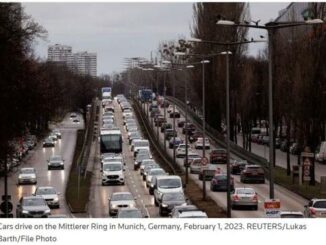
This story was originally published by The Kansas City Beacon, an online news outlet focused on local, in-depth journalism in the public interest.
Every year, Kansas City residents spend nearly 5% of their income on electricity, ranking the city among the most energy-cost-burdened in the nation. And the cost doesn’t only affect the wallet — energy consumption within buildings and homes causes nearly two-thirds of the city’s greenhouse gas emissions.
For years, Kansas City has focused on reducing energy consumption among the largest contributors. But it is struggling to get building owners to cooperate.
A city ordinance passed by the Kansas City Council in 2015 requires operators of large buildings to report their annual energy and water consumption. The intent is to educate owners on how to upgrade their insulation, heating and cooling systems, and lighting to use less energy.
Get connected
Every morning, thousands of energy professionals turn to our newsletters for the day’s most important news. Sign up for free to get the latest delivered straight to your inbox.
Eight years later, only 45% of buildings are reporting their usage. And although the city has the legal power to impose fines of up to $2,000 for failure to follow reporting requirements, officials have chosen not to do so.
Noncompliant properties include a number of commercial office buildings as well as some local landmarks such as the Kauffman Center for the Performing Arts, the Nelson-Atkins Museum of Art, and the J.E. Dunn construction group’s downtown headquarters.
Advocates for climate action say that the city’s data is necessary to locate and address inefficiencies in the energy grid, as well as to create enforceable energy performance standards for the heaviest energy users. But without enforcement, building owners have little reason to comply.
The Energy Empowerment Ordinance requires the owners of all Kansas City buildings larger than 50,000 square feet to report their annual energy and water consumption, as well as an optional rating from Energy Star, a federal program that gives buildings an energy performance score.
Of the 1,229 Kansas City properties that fall under the guidelines, only 558 submitted the required data before the May 1, 2023, deadline.
To improve the compliance rate, Kansas City has contracted with the Metropolitan Energy Center (MEC), a local nonprofit with expertise in energy efficiency and environmental health.
“If you want to make improvements to your building, if you want to start saving energy, start saving money on your utilities, you have to know where you’re beginning,” said Brittanie Giroux, the senior program coordinator of building performance.
The buildings that fall under this ordinance include big-box stores, commercial and industrial properties, and large multifamily residential buildings.
Mary English, the program manager at MEC, said that tracking energy efficiency can help businesses save on energy bills by highlighting weaknesses in their energy efficiency. For multifamily residences, she said, tracking energy usage can also call property managers’ attention to the welfare of their tenants.
“The landlord might be an out-of-town property management firm, and the tenants are paying their own utility bills,” English said. “They may or may not be benign, but either way, they’re out of the loop and don’t know about the high energy bills.”
In more extreme cases, improper insulation can cause mold infestations, even in new buildings, and heavy use of space heaters can result in deadly apartment fires.
Every January, the Kansas City Department of Environmental Quality sends letters to qualifying properties notifying them that they need to comply with the ordinance and report their usage.
From there, building owners work with staff at the MEC, who show the owners how to access their Evergy and KC Water data and upload it to an Energy Star program.
Giroux and the customer service team make hundreds of calls to property owners. At times, they might struggle to track down the property managers of buildings owned by obscure LLCs.
“That’s where we come in, and we’re just trying to hold their hands and let them know that this process is not as hard as it seems,” Giroux said. “We’re here to help the city reach its climate goals and help you save some money on your utilities.”
The deadline for owners to report their data is May 1 each year. At that point, the ordinance gives Kansas City the power to impose a fine between $50 and $500, which accumulates every day it’s not resolved until it reaches a maximum of $2,000.
However, the city chooses not to impose these fines, leaving building owners with no penalty for noncompliance.
The Beacon emailed the Department of Environmental Quality asking, among other things, why the city does not fine building owners for noncompliance. A city spokesperson responded with some information, but did not address the question of sanctions.
Without any enforcement, MEC can only gently encourage property owners to observe the ordinance.
Some cities, such as New York, have similar energy reporting requirements, and building owners who don’t comply can face fines up to $2,500. The city also requires building owners to post their energy efficiency rating on store windows.
“In Minneapolis, you’ll get a notice from the Health Department,” Giroux said. “That scares a lot of people (more than) the environmental office. If it’s coming from the Health Department, you’re like, ‘Oh my God, I need to fix this right away.’”
Other programs focus on rewarding compliance, rather than penalties. For example, some cities offer property tax incentives to encourage property owners to participate in some sustainability programs.
But as Kansas City chooses neither option, the MEC has a difficult job convincing building owners to voluntarily publish their energy usage.
“The city right now just does not prioritize it, so the pressure’s on us to raise that compliance rate, just through creativity and pleading,” English said.
Although tracking energy use is the first step, the eventual goal is to use this data to develop building performance standards that are realistic and tailored to the city’s current needs.
“Sharing this information is a minimum,” said Billy Davies, the conservation program coordinator for the Sierra Club’s Missouri chapter. “Getting that information is the first crucial step to developing sound policies to increase compliance with these important metrics.”
Although tracking energy usage is an important foundational step, English said the city doesn’t need to wait for a higher compliance rate to take action. Other cities, including St. Louis, have already implemented minimum energy performance standards, including a minimum Energy Star rating.
“We need to increase the compliance, but I don’t think that the city, in my humble opinion, should wait until there’s perfect 100% compliance,” English said. “We know what an efficient building score is.”
From an equity standpoint, Davies said that not only does the climate crisis disproportionately affect people of color and those living in lower-income neighborhoods, but energy inefficiency also places a financial burden on marginalized communities.
“Kansas City faces one of the highest energy burdens of major cities in the country, and there’s a huge disparity across race and socioeconomic status,” Davies said. “It’s going to take private stakeholders, particularly the large ones that have benefited enormously from policy and, in this case, from a lack of enforcement of key environmental safeguards, to get on board.”



